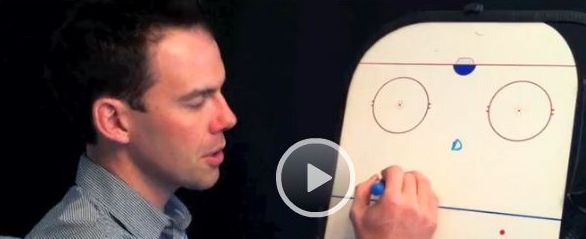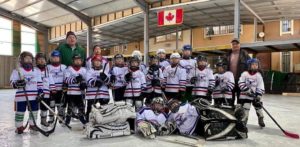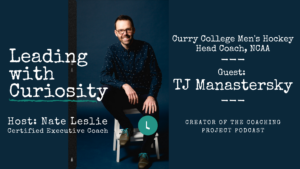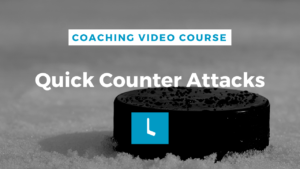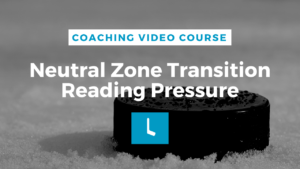Study the Game: Challenge the Status Quo to Improve Your Hockey Mind.
“There is no knowledge that is not power” – Ralph Waldo Emerson.
Embarking on a quest to better understand the game will by nature affect the way you coach, play, read, and study the game. Your hockey mind will open and expand. Thinking critically about the countless strategies, skills, and tactics of hockey gives you a more holistic perspective and challenges the status quo. We believe that studying our content at www.howtoplayhockey.ca and taking advantage of the interactive excercises, sharing it with your hockey circles, and formulating your own opinions will significantly impact the way you understand the game.
Remember the motor you took apart when you were 10 years old?
For you we have created over 100 video tutorials defining hockey terminology, tactics, and systems that will improve your ability to talk about the game, pick up plays and systems when watching the game, and let you get more out of your own team’s play. Deconstructing the game into all its components gives you the chance to put it together one piece at a time and change the way you see the game. We’ve recently added a 7th module to our curriculum where I’ve posted exclusively, audio interviews with great NHL, minor pro, and Junior coaches including Mike Johnston, 7 x Stanley Cup winner Barry Smith, 1000 game NHL veteran and Stanley Cup winner and leadership trainer Ryan Walter, Sutter brother legend Rich Sutter, just to name a few. I get incredible learning opportunities from these coaches at our West Coast Hockey Prep Camp every summer and want to share it with you.
Now for the 7 different ways you can expand your hockey mind…
Gardner’s Theory of Multiple Intelligences:
Over years of cognitive research Dr Howard Gardner of Harvard University developed the theory of Multiple Intelligences. Check it out here on Wikipedia. We all learn in ways that are identifiably distinctive. In short, we process data into knowledge in a variety of ways, and at different rates. Some people can hear a coach explain a hockey system verbally and understand it. Others need to hear it, and see it on a white board. Yet others need to try it for themselves, hear it articulated, see it on a whiteboard, and discuss it with a teammate or friend. I am convinced that coaching is teaching. We need to give the same attention to learning styles in coaching that a teacher or professor gives to his/her students.
Assessing Gardner’s Theory of Multiple Intelligences and your hockey mind:
- Visual-spatial: Architects and sailors are very aware of their surroundings. People have said the same about Mario Lemieux, Wayne Gretzky, Pavel Datsyuk, and Sidney Crosby. Knowing what all 12 players on the ice are doing will improve your hockey mind.
- Bodily-kinesthetic: Watching our skill tip videos will help you better execute the skills required to be successful. Watch them, and try to execute the skills the next time you are on the ice. Making the kinesthetic associations with what you see will improve your physical skills.
- Musical: Think rhythm and timing. Understanding the timing required to develop plays and breakouts will help the game develop in front of you with a sense of flow and purpose.
- Interpersonal: Take what you learn in the videos and discuss it with hockey friends or teammates. The articulation required to process what you have watched and put it into your own words will solidify the learning.
- Intrapersonal: Assess what is important to you, and explore those areas. For every video we have a printable slide with brief notes, and space to create your own notes and sketches. Processing info onto paper while watching the videos will give you the chance to reflect, and prevent your mind from wandering.
- Linguistic: When discussing the content, use your words as efficiently and effectively as possible. We challenged ourselves to create video content that is clear, concise, and easy to understand. We hope we have succeeded, and challenge you to teach the game in a similar manner.
- Logical-Mathematical: Systems and tactics in hockey come down to odds, percentages, and calculated risk. Our section on Offensive Zone Entries, for example, discuss the calculated risk and chance of success of a variety of options. Players and coaches with strong logic and reasoning skills will surely enjoy the tactical side of the game more than someone extremely kinesthetic who simply wants to get out there and ‘play hard.’
Willing to try our online coaching course to improve your hockey mind? Join us at www.howtoplayhockey.ca for only $9.99/month, 30 day money back guarantee.
Already a member? Get back to studying! www.howtoplayhockey.ca/login.
Sources:
1. http://www.tecweb.org/styles/gardner.html
2. http://www.pbs.org/wnet/gperf/education/ed_mi_overview.html
Like this post? Please share it so I can continue to spend time adding value to the lives of hockey coaches and families.

